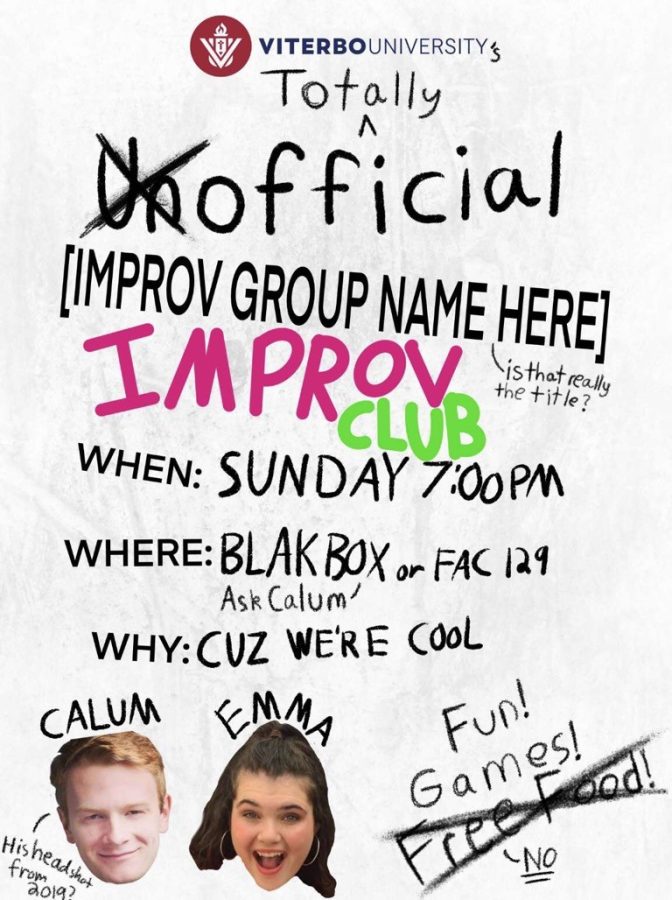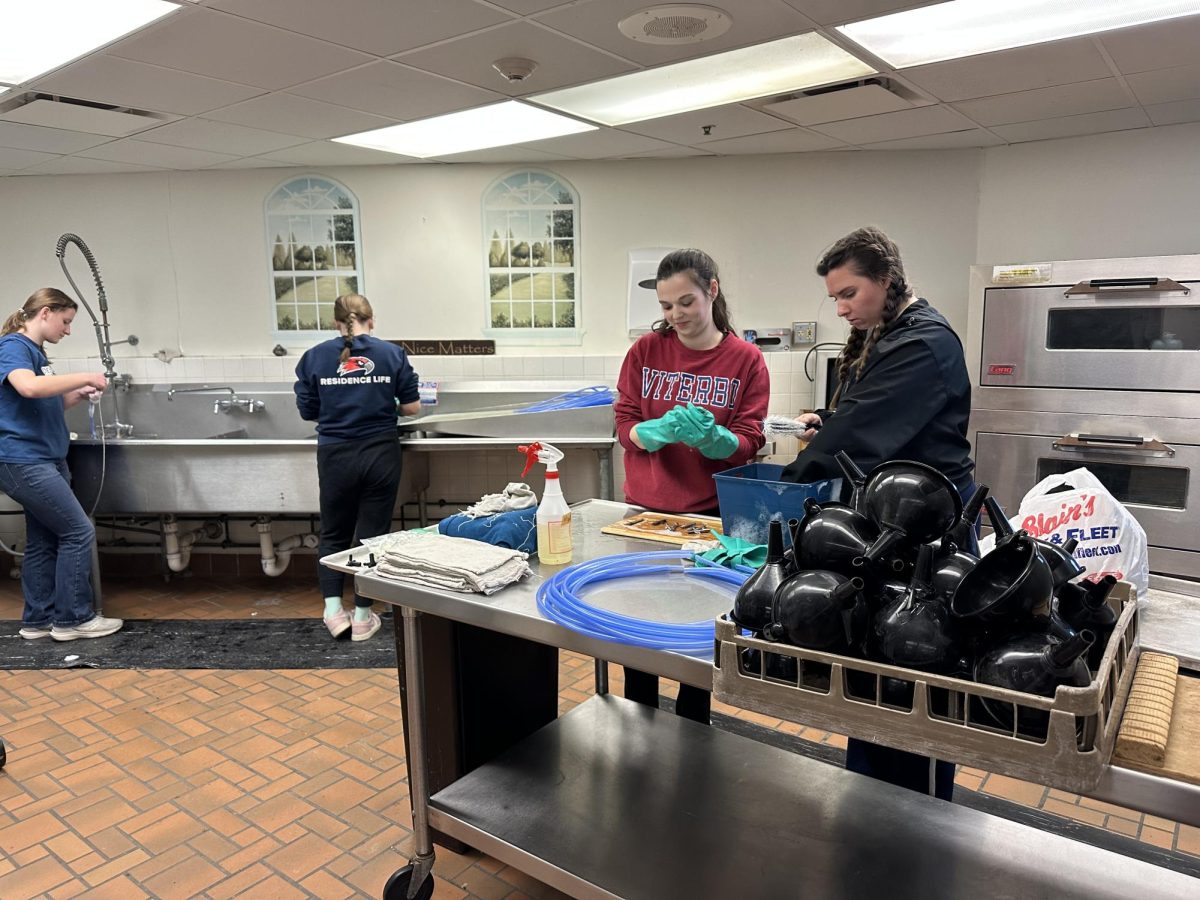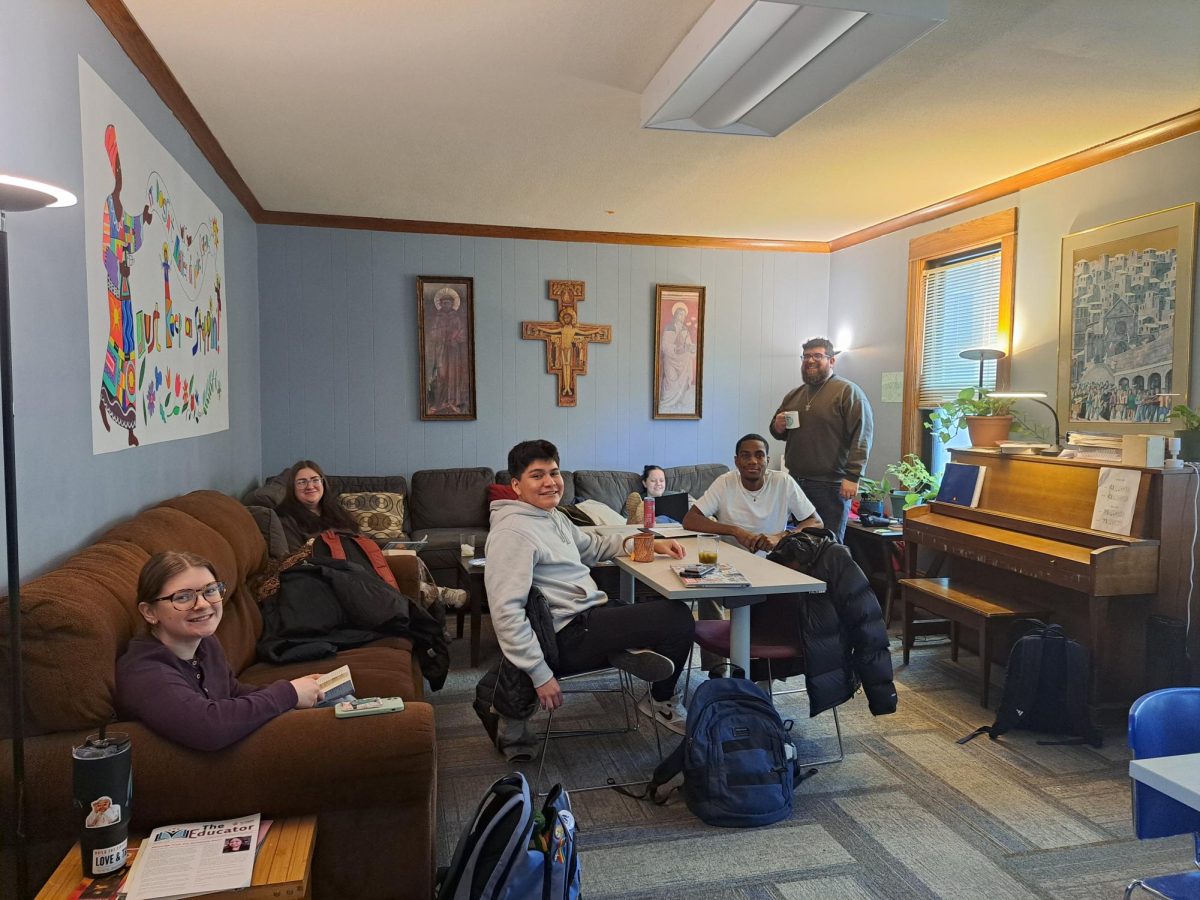Improv Club: A new life, a new scene
October 31, 2022
Many art forms find their home in Viterbo’s Fine Arts Center, but one of the least well-known is improvisational theatre, known as “improv” for short. Improv engages a team of actors in games and scenes that are created on the spot. Actors are usually given a cue, phrase, or handful of lines to build their worlds and characters, but the rest is spontaneous. This week, the Lumen got to sit down with a student who is bringing this form of acting to life on campus: Improv Club Vice President Emma Phillips.
According to Phillips, Improv Club’s title changes from week to week amongst members. One recent name was “Insert Improv Club Name Here.” Phillips’ personal roots in improv lie in her past. “I was on the improv team in high school, where we won state,” she explained. It was this history that motivated her to pursue improv during her freshman year at Viterbo in 2019, where a small improv group called Square Wheels existed.
As with many campus activities, the COVID pandemic stopped Square Wheels from rolling, but when fellow Conservatory student—and current club President—Calum Sullivan approached her about re-starting the club, it was an opportunity that Phillips could not pass up. She notes, “For me as an actor, improv is something that allows me to feel successful because of its nature. There is no right, wrong, or bad idea. It allows me to let myself go and not be so intellectual about choices I make on stage.” Referring to the club, Phillips says that “It’s a friendly place; no one’s discouraged, even if you make a ‘wrong’ choice. We like to build people up.”
Meetings consist of students playing improvisational games in order to hone their skills for live shows. These games, the Vice President says, are meant to “throw the individual into a fight-flight mode to come up with literally anything.” One such game is called The Onion.
This exercise is named for the layers of overlapping scenes that players must construct and then deconstruct with the help of their comrades. The first player begins by performing a physical action that prompts a scene. Then, more students do the same, each creating a scene entirely unrelated to the first. Once this is complete, the final student must find a way for their character to “leave” the scene they have created with the help of others. This process repeats until all “layers” have been peeled back.
When asked about improv’s benefits, Phillips explains, “For actors, improv allows you to not be an overthinker on stage, be in the moment, and use the imaginary circumstances on stage.” Connecting to a future career path, she adds, “Preplanned movements can be beautiful, but without improv skills, panic can set in.” Sometimes, when a prop is misplaced or a line is missed, Phillips says that “Actors can fail to physically get through the scene.” Going through that panic on a regular basis, she says, is what makes it logical on stage.
For those whose future careers might not be under a spotlight, the Vice President believes improv can still be an asset. “For non-actors, improv teaches you how to communicate nonverbally while also giving you confidence to put your ideas on display—without fear of judgement.” She adds, “No one likes to speak up in class,” which she believes stems from anxiety over saying an incorrect answer.
However, she concludes that improv works against this thinking. In improv, she says, “Consequences for the ‘wrong answer’ are not severe,” adding, “Failure happens in Improv Club; it facilitates putting ideas out without judging [oneself].” This self-confidence, she believes, facilitates greater relationships with teachers by engaging students with them and their coursework in a more meaningful way.
Club meetings are currently held from 7 to 8:30 p.m. every Sunday in Fine Arts Center Room 129. As for the future, the club is currently organizing a short-form improv show, which will consist of students playing improv games and creating scenes in front of an audience. Phillips asks community members to keep their eyes peeled for information. They can rest assured that the date and time, unlike the content, will not be spontaneous.


